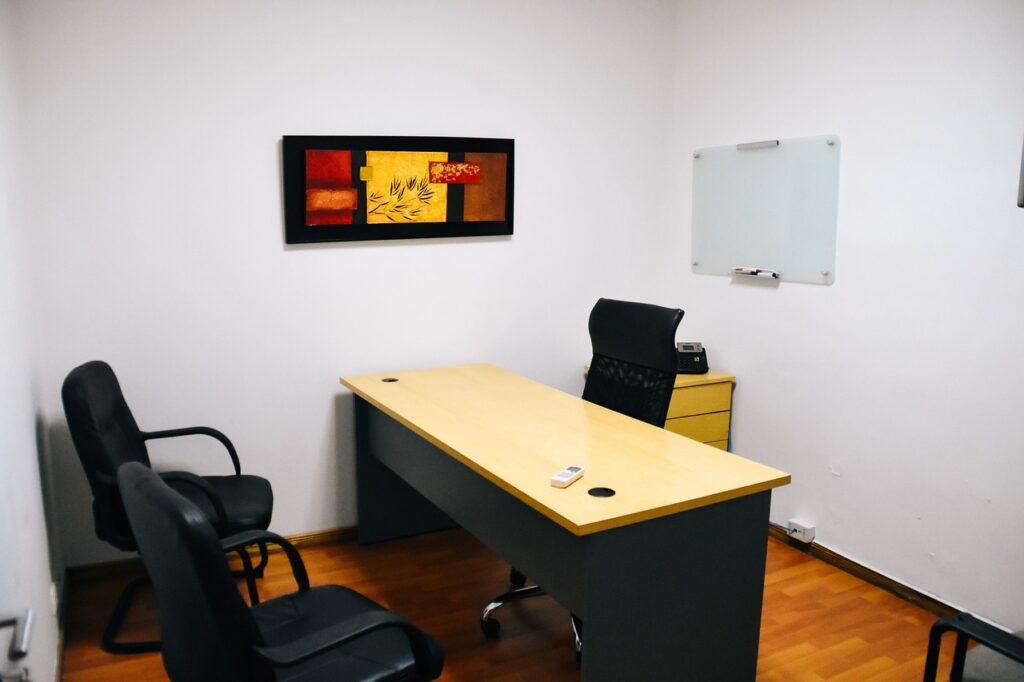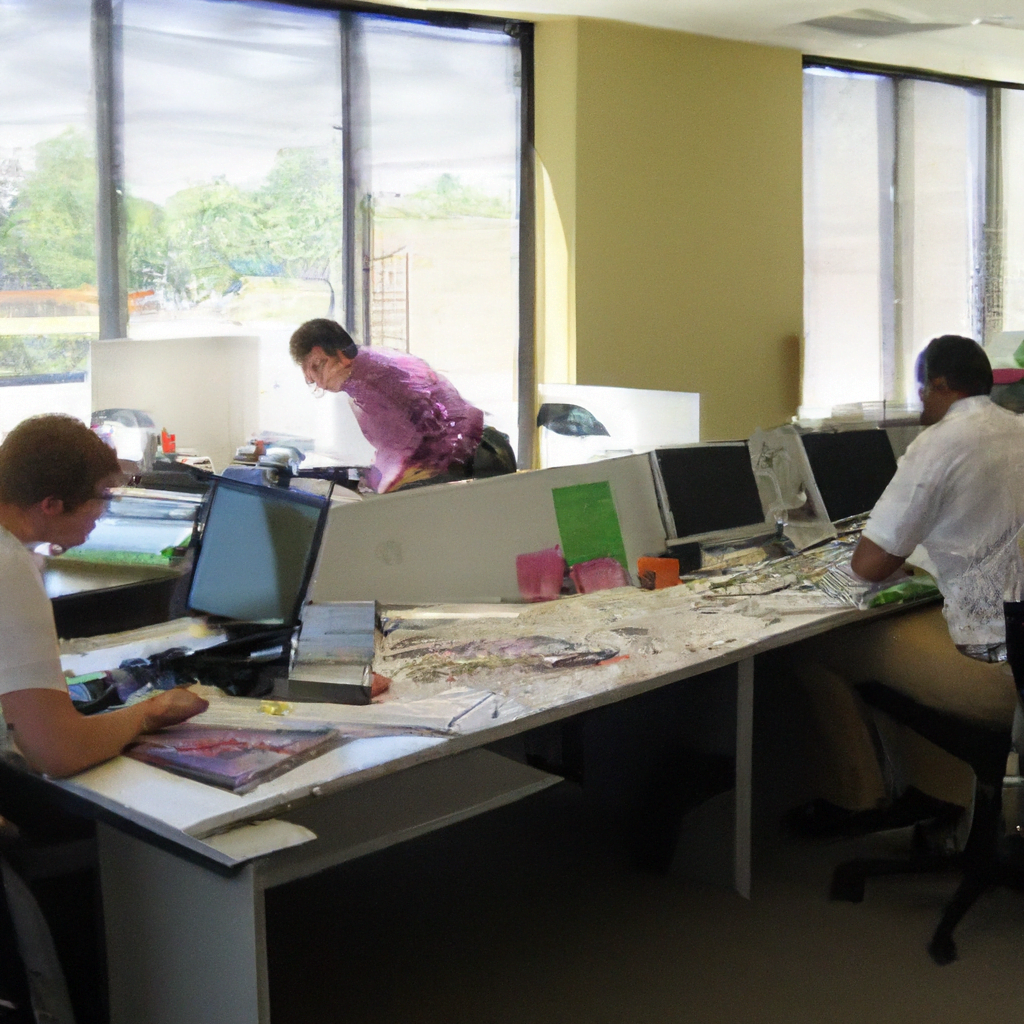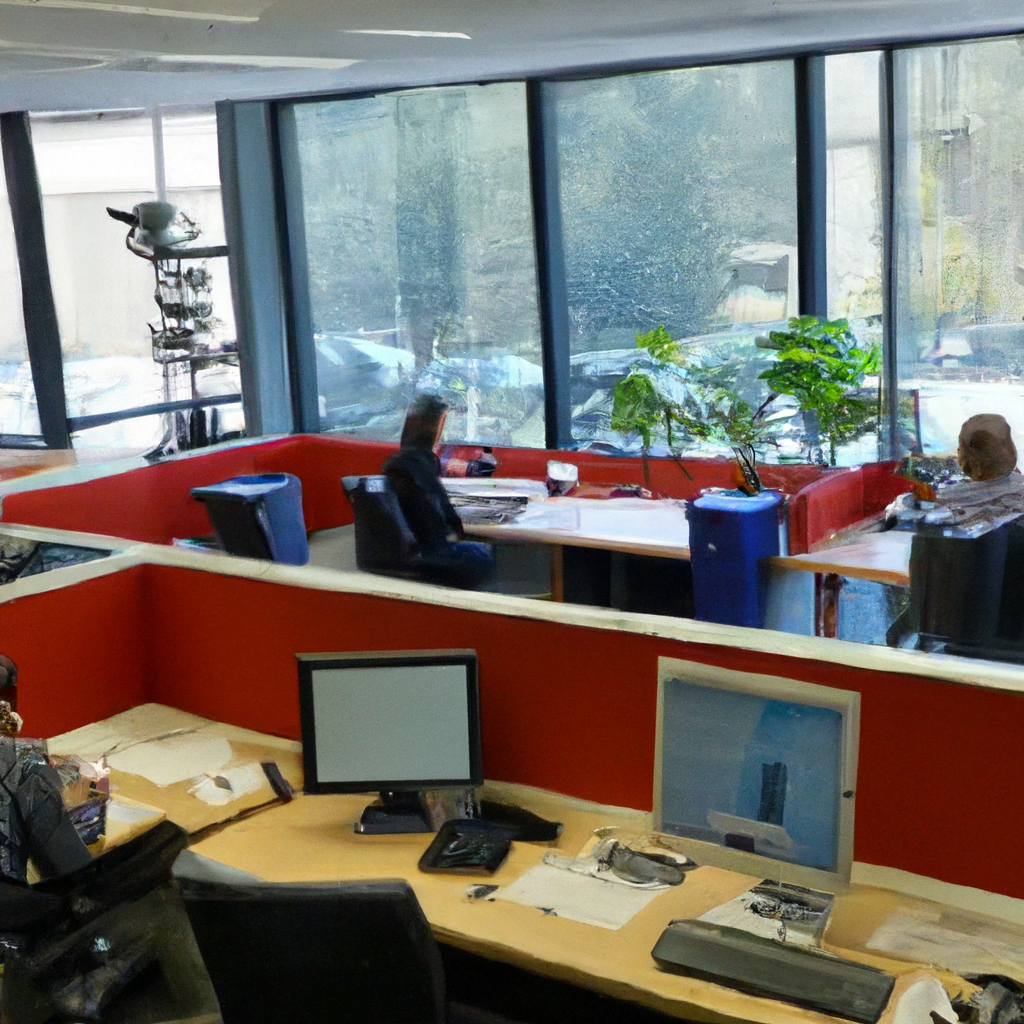Have you ever wondered what the future of workplaces might look like? Picture a world where the traditional office set-up is replaced by modern, innovative spaces that encourage productivity, creativity, and collaboration. The shift is already happening—with the rise of flexible workspaces. In the Egyptian real estate market, this trend is transforming the landscape, with more businesses opting for shared and flexible office solutions. This article sheds light on how flexible workspaces are taking center stage in Egypt’s real estate industry, revolutionizing how businesses operate and employees work.

The Emergence of Flexible Workspaces in Egypt
Over the past decade, flexible workspaces have experienced a tremendous growth globally and Egypt is no exception. These modern, dynamic environments are essentially the antithesis of traditional office spaces—promoting collaboration, flexibility, and innovation.
The advent of coworking spaces
Coworking spaces are shared, community-driven workplaces that cater to freelancers, small businesses, start-ups, and anyone in need of a flexible and conducive working environment. These spaces emerged out of the need for affordable, plug-and-play offices and quickly gained popularity for their robust amenities, networking opportunities, and collaborative ethos.
Relevance in the Egyptian market
Particularly in the Egyptian context, flexible workspaces have been a notable addition to the commercial real estate scene. Given the country’s bourgeoning start-up ecosystem and high rate of freelance economy, the demand for flexible, cost-effective, and modern workspaces is evident.
Influences on the shift towards flexibility
The shift towards flexible workspaces in Egypt can be attributed to many factors—the economy’s increasing reliance on entrepreneurship, changing work culture, the digital revolution, and more. In addition, the adoption of flexible workspaces also aligns neatly with the broader trend of urbanisation and city development.
Understanding the Concept of Flexible Workspaces
Serving as the antithesis to traditional office spaces, flexible workspaces bring unbounded autonomy and flexibility to the business environment.
Definition and key features
Flexible workspaces refer to any workspace that provides businesses and employees with added flexibility. This can include coworking spaces, virtual offices, and serviced offices. Key features often include flexible rental terms, diverse work settings, professional business services, and opportunities for networking and collaboration.
Variety within flexible workspaces: Coworking spaces, serviced offices, virtual offices
Within the broad term of flexible workspaces, there are different types. Coworking spaces offer a communal workspace environment conducive for collaboration. Serviced offices, on the other hand, are fully-equipped and managed spaces that cater to larger businesses. Lastly, virtual offices provide the benefits of a business address and professional services without the need for physical space.
The Evolution of Office Spaces in Egypt
The way we work has significantly evolved over the years. Traditional office spaces are gradually giving way to more flexible, innovative workspaces in Egypt.
From traditional offices to innovative workspaces
Once, office spaces in Egypt were synonymous with isolated cubicles, rigid hours, and long-term leases. Today, they are characterised by open spaces, flexible hours, and short-term agreements. This transition reflects the evolving needs and aspirations of Egypt’s innovative workforce.
Impact of urbanisation and city development
The rapid urbanisation and development of Egypt’s cities, including Cairo, Alexandria and Giza, have made space a premium commodity. This city development complements the shift towards flexible workspaces as they offer solutions that maximise space and resources.
Economic Factors Driving this Shift
Several economic factors have contributed to the booming demand for flexible workspaces in Egypt.
Increasing entrepreneurship in Egypt
Entrepreneurship in Egypt has been flourishing as Cairo, the capital, has turned into a buzzing hub for start-ups. These young businesses are often attracted to the cost-efficiency and flexibility of shared workspaces, driving up the demand.
Cost-efficiency of flexible workspaces
Flexible workspaces eliminate the need for businesses to invest heavily in office space. Their “pay-as-you-use” model paves the way for massive savings. Companies only have to pay for what they use, thus reducing overhead costs significantly.
Attractiveness to foreign companies
The shift to flexible workspaces is not only happening at the local level. Many foreign companies are setting foot in Egypt, attracted by the financial advantages and amenability that such spaces provide. This is paving the way for a more global work environment in the country.

Technological Advancements and Flexible Workspaces
Technological advancements have played a considerable role in moulding the landscape of office spaces, shifting away from traditional settings and towards flexible workspaces.
Role of the digital revolution
Tech-savvy millennials are key drivers of the digital revolution and consequently, the proponents of flexible workspaces. The rise of remote working, freelancing, and digital entrepreneurship has fuelled the need for environments that can accommodate such work culture.
Need for technologically equipped workspaces
In this digital age, the need for technologically equipped workspaces is paramount. Unlike traditional offices, flexible workspaces are designed to incorporate advanced technology, high-speed internet, and digital amenities.
Social and Cultural Factors
Changing social and cultural norms are influencing Egypt’s shift towards flexible workspaces.
Changing work culture and expectations
The global work culture is rapidly changing and Egypt is no different. Today, work is no longer confined to 9-to-5 schedules or office settings. This calls for spaces that can accommodate flexible timings, varying workloads, and diverse tasks.
Increasing demand for work-life balance
More and more, employers and employees are acknowledging the importance of work-life balance. Flexible workspaces, with their inherent flexibility and modern amenities, contribute to a better work-life balance, proving attractive to a workforce keen on maintaining this equilibrium.

Benefits of Flexible Workspaces
Flexible workspaces offer a plethora of benefits, making them a viable alternative to traditional office settings.
Networking and collaboration opportunities
One of the defining features of flexible workspaces is the opportunity to network and collaborate. Employees from different companies can mingle and collaborate, opening up avenues for fresh perspectives, collaboration, and business opportunities.
Flexibility and reduced overheads
Flexible workspaces are just that—flexible. Companies can upscale or downscale as required without worrying about long-term leases or overhead costs.
Enhanced employee satisfaction
These workspaces tend to facilitate a better work-life balance, a stimulating work environment, and subsequently, improved employee satisfaction and productivity.
Challenges and Limitations in Adoption of Flexible Workspaces
Despite the many benefits, transitioning to flexible workspaces is not without challenges.
Availability of infrastructure
To facilitate a smooth transition to a flexible work environment, Egypt would need robust infrastructure. The availability of high-speed internet, modern buildings, and technical support are a must.
Resistance to change in work culture
While younger generations may embrace flexible workspaces, older generations may resist such drastic changes in work culture. This makes it essential for companies to engage in awareness and training sessions.
Regulatory challenges
Last but not least, there might be regulatory and legal aspects to consider. For instance, some commercial laws might not recognize coworking spaces, posing a challenge to their adoption.

Impact on the Egyptian Real Estate Market
The rise of flexible workspaces has had a profound impact on Egypt’s real estate market.
Shift in demand from traditional office spaces
The demand for traditional office spaces has declined as more businesses opt for the flexibility and convenience that coworking and serviced offices offer. This shift in preference is reshaping the commercial real estate market in Egypt.
Influence on commercial property prices
The rising demand for flexible workspaces has increased competition for suitable locations. Consequently, we can see an upward trend in commercial property prices, particularly in urban hubs.
Emergence of new real estate players
The flexible workspace sector is also fostering the arrival of new players in the Egypt real estate scene. Property managers are rethinking the use of their spaces and new workspace providers are emerging to meet the growing demand.
The Future of Flexible Workspaces in Egypt
The future of flexible workspaces in Egypt looks promising.
Potential growth and expansion
The flexible workspace sector has immense growth potential in Egypt. As the economy continues to innovate, demand for flexible workspaces is expected to rise even further.
Adapting to post-Covid work trends
In a post-pandemic world, as remote working continues to be the norm and demand for flexibility rises, coworking spaces are in an advantageous position. They offer a balance between remote working and traditional office settings, proving more relevant than ever.
Innovations in flexible workspace solutions
Egypt’s shift to flexible workspaces is also fuelling innovations in workspace solutions—think smart offices, green buildings, and more. It’s a dynamic industry, at the forefront of Egypt’s economic transformation.
In conclusion, the rise of flexible workspaces in Egypt signals a contemporary approach to doing business—one that is adaptable, modern, and efficient. The trend, driven by dynamic economic, social, cultural, and technological factors, provides an optimistic outlook for Egypt’s real estate sector and the country’s overall economic development.


